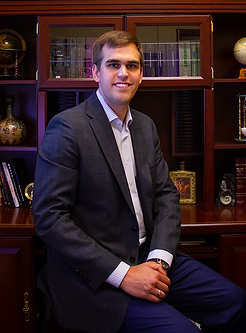Starting the Downsizing Journey: Legal Decisions
Downsizing involves many steps. One of them is getting your estate in order! Attorney Eric Christoffereon of Grams & Christoffersen, S. C. spoke with us about all the legal decisions and things to consider in the next stage of life. Keep reading for his answers to frequently asked questions.
"Do I need to keep legal documents?"
In this day and age, if you like to retain paper financial documents that’s fine but really there’s no need for it because it is easy to replace. You can call your financial advisor and they can replace that document for you since it is all computerized now. If you do keep those records, three years is good. You don’t need your life history of investments. Tax returns is another situation – keep seven years of tax returns. You’ll want to keep your estate planning documents essentially forever (your will, trusts, powers of attorney). Your kids or others will be responsible for taking care of that after you’re gone.
“What happens with my items that I don’t give away?”
How we handle those at my law firm (whether you have a will or a trust), we always have a method called a property memorandum. A property memorandum is really just a list that you are able to make for yourself. Your will or your trust will say that “I might make a property memorandum, if I do, you should follow that property memorandum.” It’s a way that we allow clients to take charge of that aspect of their estate without having it tied into their will or trust where you have to go in and see your attorney just because you decided to have this item go to a different grandchild. You are basically able to completely self-maintain your distribution of tangible items.
When you are downsizing and thinking of what’s important (heirloom-wise, what you want to pass on to the next generation) I encourage my clients as much as they can to actually pass on some of that stuff right then and there when they’re downsizing rather than doing it after they’re gone. If you pass it down to the loved one when you’re downsizing you can actually personally share the memory with them. Oftentimes, these items are meaningful because they have a specific memory tied to it and then that’s the opportunity to share that memory. Sometimes your family doesn't know why a particular thing is important and if they don’t know why it was important to you, then it’s not important to them. Decide if the special memory item or heirloom is something that you are going to be using or if you’re just holding on to it to pass on to them. If it’s not going to be used and enjoyed in your life now, go ahead and pass it on while you can share that memory with your loved one. It’s a win-win because you get to declutter and you get to share that memory.
"How can I downsize my estate plan?"
First, let's define what an estate plan is. An estate plan includes your will and trust, powers of attorney, important documents that lay out what your legal wishes are, who should make decisions for you, and what types of decisions to make.
One type of clutter to downsize in those documents is when retirement-age people still have information that talks about who is going to be the guardian for their kids and setting up trusts for their kids. Their power of attorney is still their brother or sister. Now they may want their kids doing that for them at this point. It’s important to update that and get it matched up to what your current wishes are.
Make sure all your advanced directives are in place. You want to be prepared for accidents, injury, or illness. Make sure that, if there is an emergency, it’s clear who is in charge, who can make decisions, and what your wishes are. Make sure your kids or whomever you choose do have the legal authority to make decisions.
Avoid probate. Avoid getting the court involved – avoid that stress and frustration. When you’re meeting with someone about your finances, make sure you’re meeting with someone that can help advise you on what probate is and how you can avoid it in your particular situation.
Plan for long-term care. Ask yourself:
- “What is my plan in terms of my estate and finances?”
- “Do I have a plan to protect my estate from long-term care costs?”
You may be well and healthy now which means it's a great time to plan for the future since you may not always be well and healthy. Consider how that may affects your spouse, kids, and finances. What does that big picture look like for your estate plan?
"How do I start?"
Make sure you’re having the conversation with an attorney or qualified professional to say what your concerns are, what you’re doing currently to address those concerns, and to ask what else you should be doing to address those concerns. That’s what I (Eric) help people with everyday and I love what I do! We have five local offices and we’re always meeting people in their local community. Sitting down and having that no obligation, no cost to you, initial consultation where we just talk about your family, your life, and what’s important to you. From that, figure out some legal things that you could and should be doing. You get to decide if that’s something you want to implement or not.
Thank you, Eric Christoffersen for sharing these insights!
Looking to Downsize?
Get your home's value - our custom reports include accurate and up to date information.



